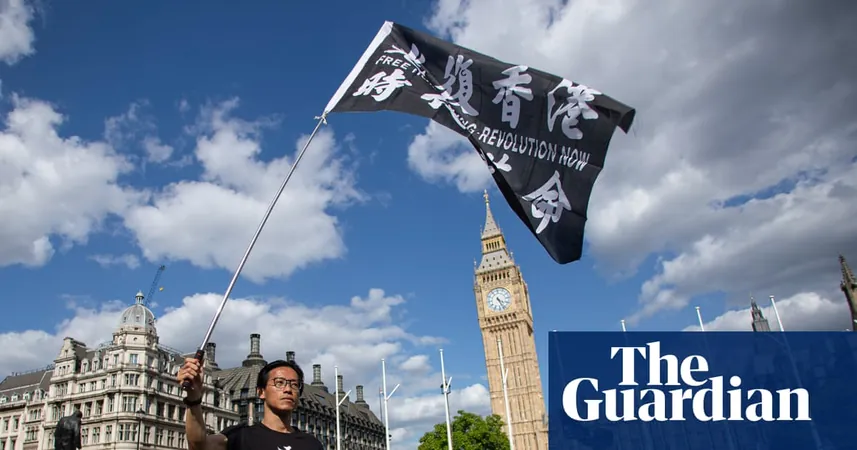
Hong Kong Targets 19 Activists with Arrest Warrants, Accusing Them of Subversion
2025-07-26
Author: Ming
In a striking escalation of its crackdown on dissent, Hong Kong's national security police have issued arrest warrants for 19 activists currently residing abroad. This major move accuses them of subversion under the controversial national security law imposed by Beijing in 2020, which followed extensive pro-democracy protests in 2019.
The activists are alleged to have played key roles in the Hong Kong Parliament, a pro-democracy group that the authorities claim intended to undermine the state’s power. This group is said to have organized a referendum and fielded candidates for an unofficial Hong Kong Parliament designed to advocate for self-determination and a new constitution.
The police argue that their operations aim to unlawfully overthrow both the local and central Chinese governments, indicating that more arrests may be on the horizon.
Notable figures among the accused include businessman Elmer Yuen, commentator Victor Ho, and activists Johnny Fok and Tony Choi. Four of the suspects are already subject to previous arrest warrants, each with a bounty of 1 million Hong Kong dollars (approximately £95,000). For each of the remaining activists, authorities are offering 200,000 Hong Kong dollars for information leading to their capture.
Among those named is also Feng Chongyi, a professor of China studies, who condemned the bounties as absurd. He expressed his concern over the reach of the Hong Kong authorities: 'They’ve got the power, they’ve got the influence overseas, they want to control everything even from abroad,' he stated.
The United Kingdom's foreign and home secretaries condemned the arrest warrants in a joint statement, calling them 'another example of transnational repression' and asserting that this move tarnishes Hong Kong's international standing.
In a response, China's embassy in the UK accused the British government of gross interference in China's internal matters, urging them to stop protecting what they termed 'criminals'.
Australia's Foreign Minister, Penny Wong, joined international condemnation, asserting that freedom of expression and assembly are fundamental to democracy. She reiterated Australia's objections to the extraterritorial application of Hong Kong's national security legislation.
Originally a British colony, Hong Kong returned to Chinese control in 1997 with assurances of maintaining a high degree of autonomy, including free speech, under the 'one country, two systems' principle.
Critics argue that the national security law is being weaponized to suppress dissent. However, Chinese and Hong Kong officials maintain that the law is crucial for restoring stability following the upheaval of 2019.
Authorities have reiterated that national security violations are serious offenses with extraterritorial implications and have urged the wanted individuals to return to Hong Kong and surrender. They also warned that aiding, financing, or facilitating participation in the Hong Kong Parliament group could constitute a criminal offense.


 Brasil (PT)
Brasil (PT)
 Canada (EN)
Canada (EN)
 Chile (ES)
Chile (ES)
 Česko (CS)
Česko (CS)
 대한민국 (KO)
대한민국 (KO)
 España (ES)
España (ES)
 France (FR)
France (FR)
 Hong Kong (EN)
Hong Kong (EN)
 Italia (IT)
Italia (IT)
 日本 (JA)
日本 (JA)
 Magyarország (HU)
Magyarország (HU)
 Norge (NO)
Norge (NO)
 Polska (PL)
Polska (PL)
 Schweiz (DE)
Schweiz (DE)
 Singapore (EN)
Singapore (EN)
 Sverige (SV)
Sverige (SV)
 Suomi (FI)
Suomi (FI)
 Türkiye (TR)
Türkiye (TR)
 الإمارات العربية المتحدة (AR)
الإمارات العربية المتحدة (AR)